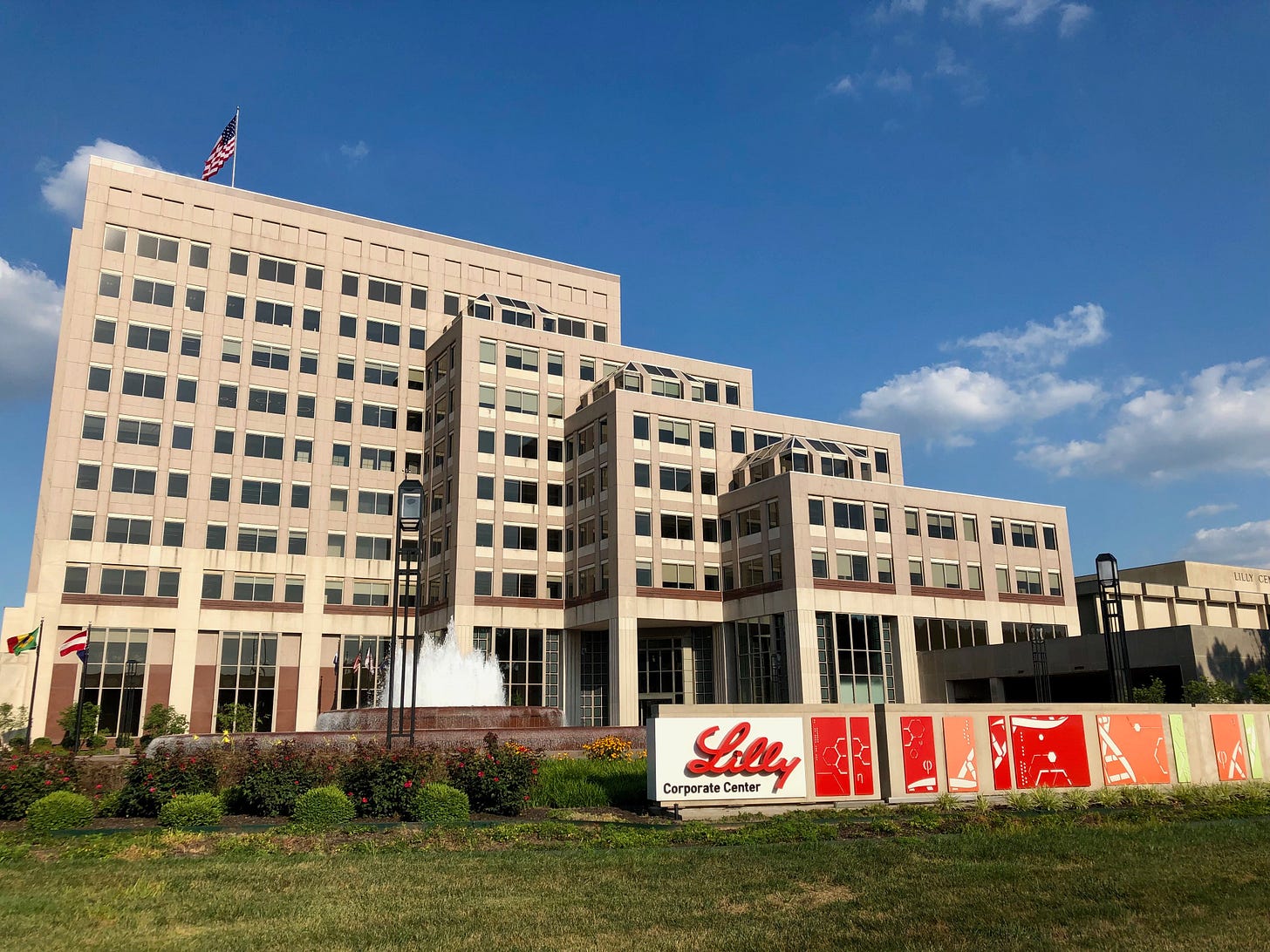Eli Lilly Invests $6.5 Billion in Houston Manufacturing Facility, Marking Texas’ First Major Pharma Plant.
Eli Lilly and Company will establish a 236-acre pharmaceutical manufacturing facility at Generation Park in Houston, investing $6.5 billion, which will create 615 high-paying positions that pay more than $100,000 annually. The pharmaceutical giant based in Indianapolis chose Houston from 300 possible locations across 40 states to establish its new facility, which will begin construction immediately and open for operations by 2030.
Focus on weight-loss medication APIs through strategic investments.
The facility will produce active pharmaceutical ingredients (APIs) for small-molecule medicines, with orforglipron as its primary focus, since this experimental oral weight-loss drug is awaiting regulatory approval. The new medication provides patients with a convenient pill-based treatment option for obesity management because it does not require food or water intake like current injection-based therapies.
The new Houston site will enable Lilly to produce orforglipron at a large scale, according to David Ricks, who serves as Lilly’s chair and CEO. The new facility will allow the company to meet the demand for orforglipron as a metabolic health treatment for millions of people worldwide who want to take pills instead of injections.
The facility will use advanced technologies, including artificial intelligence, machine learning, and digital automation systems, to optimize production operations while sustaining product quality standards. The facility stands as the biggest pharmaceutical manufacturing plant of its type in the United States, according to company officials.
The selection of Houston?
The selection of Houston as the site resulted from extensive infrastructure development and workforce development by regional organizations over multiple years. The Texas Medical Center’s location in Houston makes the city an optimal choice for biomanufacturing, as it serves as the world’s largest medical complex, which conducts 20% of all U.S. clinical trials.
The Lilly project stands as one of the most significant for-profit life sciences investments in Texas history, solidifying Houston’s position as a worldwide center for innovation, biomedical excellence, and advanced manufacturing, according to Steve Kean, president and CEO of the Greater Houston Partnership.
The new San Jacinto College Center for Biotechnology at Generation Park became operational simultaneously with the Lilly project, marking the only National Institute for Bioprocessing Research and Training-licensed facility in the southern United States. The 18,500-square-foot center at Generation Park offers industry-grade training for biotech technicians to fulfill current workforce requirements.
“Our new Houston site will enhance Lilly’s ability to manufacture orforglipron at scale and, if approved, help fulfil the medicine’s potential as a metabolic health treatment for tens of millions of people worldwide who prefer the ease of a pill,” said David Ricks, Lilly’s chair and CEO.
The facility will incorporate cutting-edge technologies, including artificial intelligence, machine learning, and digital automation, to enhance operational efficiency and maintain product consistency. Company executives described it as the largest pharmaceutical manufacturing facility of its kind in the United States.
Houston Emerges as Biotech Manufacturing Hub
Houston’s selection reflects years of strategic infrastructure development and workforce preparation by regional partners. The city’s proximity to the Texas Medical Center, the world’s largest medical complex, which conducts approximately 20% of all U.S. clinical trials, positions it as an ideal location for biomanufacturing operations.
“This is a transformative moment for the Houston region and our life sciences industry,” said Steve Kean, president and CEO of the Greater Houston Partnership. “The Lilly project represents one of the largest for-profit life sciences investments in Texas history and is a powerful endorsement of Houston’s growing position as a global hub for innovation, advanced manufacturing, and biomedical excellence”.
The timing aligns with the recent opening of San Jacinto College’s Center for Biotechnology at Generation Park, the only National Institute for Bioprocessing Research and Training-licensed facility in the southern United States. The 18,500-square-foot center will offer industry-grade training for biotech technicians, directly addressing the workforce's demands.
Economic Impact and Policy Support
The construction phase of the project is expected to create 4,000 employment opportunities, while the facility is anticipated to generate substantial economic growth throughout the Houston metropolitan area. The facility is expected to make a local economic impact of $4 for every $1 invested, according to financial models.
The Texas Enterprise Fund provided $5.5 million through the Jobs, Energy, Technology, and Innovation (JETI) program, while the state administration approved additional incentives. The JETI program replaced Chapter 313 tax incentives to provide Sheldon ISD and other local school districts with extended tax revenue streams.
The economic power of Texas drives America forward because we support innovation and enable businesses to thrive, according to Governor Greg Abbott. The $6.5 billion will be invested in this facility, which will strengthen Houston’s economy while advancing life sciences development and establishing Texas as a worldwide leader in healthcare innovation.
“Texas is the economic engine of America because we foster innovation and empower businesses to succeed,” Abbott stated. “This $6.5 billion facility will not only bolster Houston’s economy, it will boost our life sciences sector and help cement Texas as a global leader in health care innovation”.
Part of Broader Manufacturing Strategy
The Houston facility represents Lilly’s eighth U.S. manufacturing site announced since 2020 and forms part of a broader $50 billion domestic manufacturing expansion. The company plans to unveil two additional U.S. manufacturing sites before the end of the year, responding to potential tariff policies and supply chain vulnerabilities exposed during recent global disruptions.
Harris County Commissioner Rodney Ellis emphasized the strategic importance of the investment, noting that it demonstrates Houston’s capacity to support “lifesaving work in the life sciences and create living wage jobs and equitable economic opportunities”. The facility’s development signals Houston’s emergence as a premier destination for pharmaceutical manufacturing, potentially attracting additional industry investments to the region.



